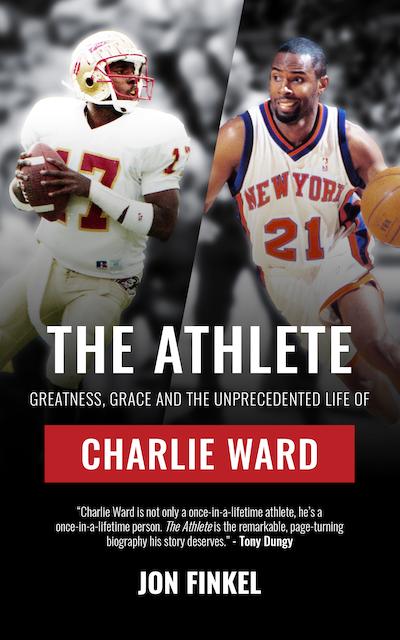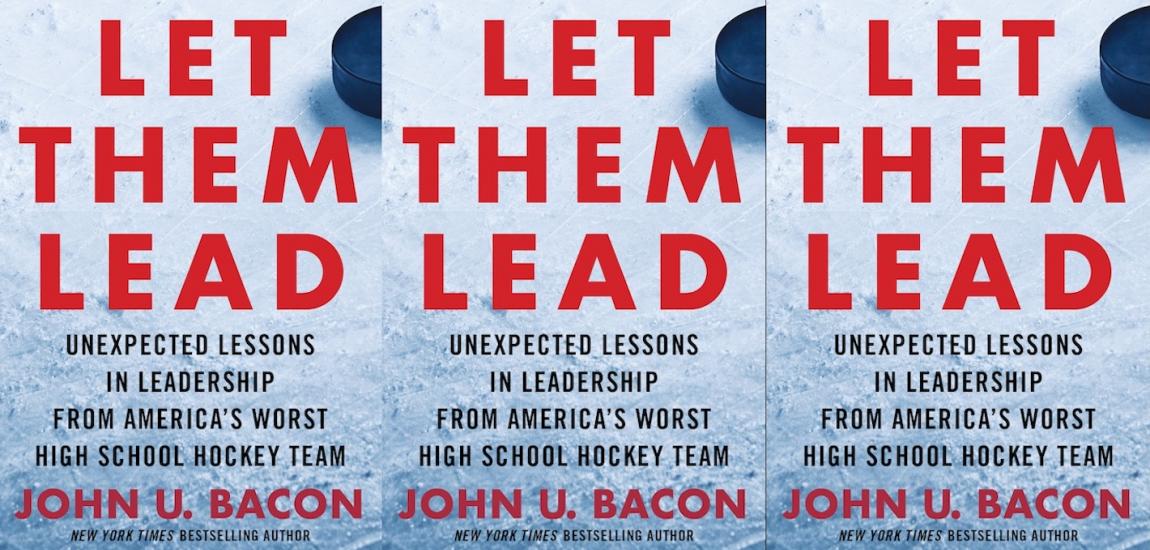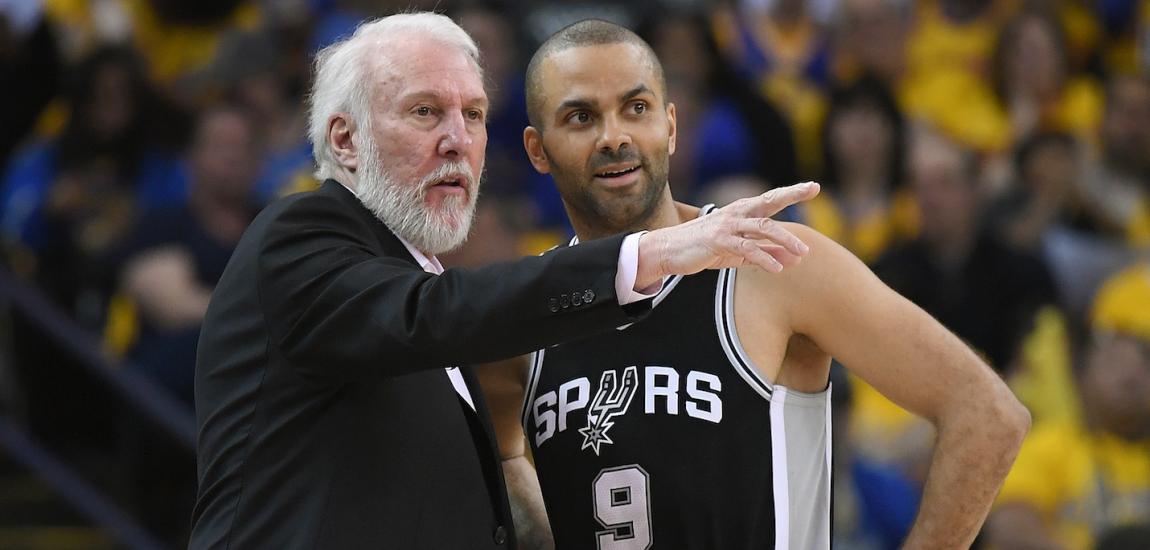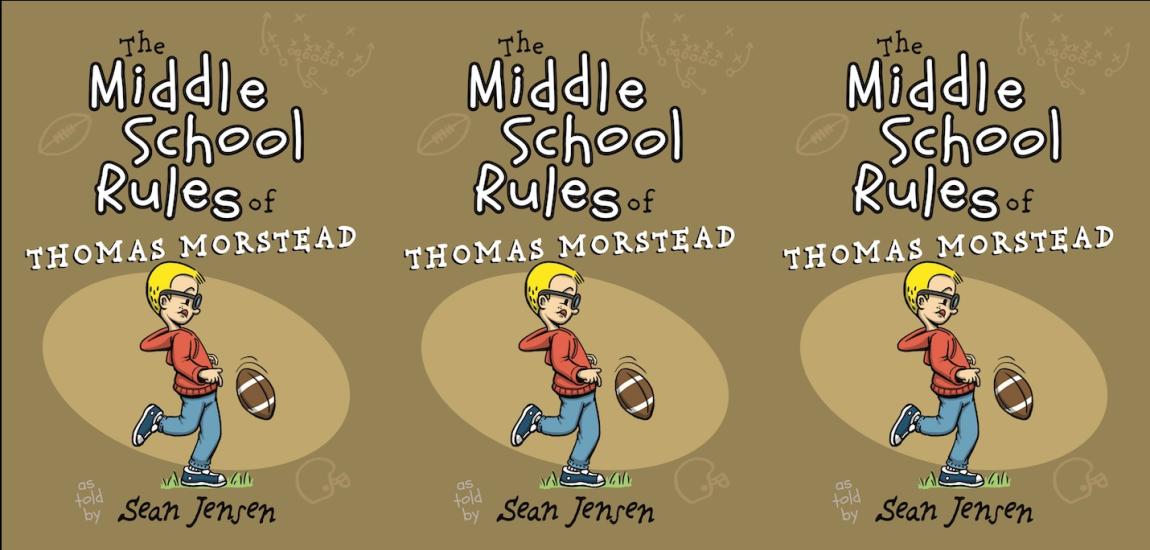It takes a once-in-a-generation athlete to win a national championship as a quarterback for Florida State, reach the Elite Eight as a point guard for his school, and then go on to become a starting guard for the New York Knicks in an NBA Finals. In this excerpt from The Athlete: Greatness, Grace and the Unprecedented Life of Charlie Ward by Jon Finkel, Charlie's mom has an interesting question for Spike Lee when they met during the week Ward won the Heisman Trophy.
The 1993 Heisman Trophy ceremony had about as much suspense regarding the ending as the movie Titanic. Yes, Heath Shuler, the stud quarterback from the University of Tennessee technically had a shot to win. And, yes, Alabama running back David Palmer had a mathematical chance, and San Diego State's Marshall Faulk hypothetically was in the running, but in reality, the chauffeurs who brought them to the Downtown Athletic Club had the same odds of leaving with the hardware.
The award had been Charlie's to lose since the Orange Bowl eleven months earlier, and all he did since was exceed every single expectation people had for him. If it were up to his teammates, there wouldn't even be a vote.
"Playing with Charlie Ward is like going to Disney World,” Tamarick Vanover said. "He's a magical person."
"When they made the Heisman Trophy years ago and looked into the future -- and this was before Charlie was ever conceived -- he was just what a Heisman winner was supposed to be," Florida State linebacker Ken Alexander said. "If he can't represent what the Heisman is supposed to be, no one can. He's definitely the best player in the country, and he's also one of the best gentlemen."
"By the middle of the season CW was playing so well he was like a senior playing against a bunch of ninth-graders out there," William Floyd said. "Charlie was the real-life Heisman."
Even ESPN's Lee Corso, who wasn't a teammate but a Florida State alumnus, heaped praise on Ward. "He's the best quarterback I've seen since Roger Staubach," he said at the time. "He takes the game and plays it at another level."
The Heisman voters agreed.
Charlie received 91% of the first-place votes. It was the largest margin of victory in the history of the trophy, at that time. He was also the first Florida State player to win, which, even at the ceremony, took a backseat to Charlie's ultimate goal.
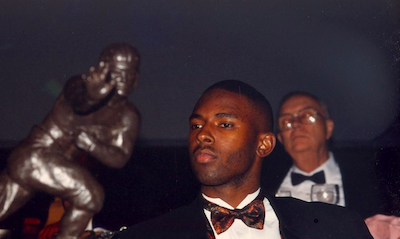
"I'm very appreciative of the award and I know it's a prestigious honor to receive," Charlie said after winning. "This is something I'll cherish more in ten years. It's not as important to me right now as a national championship. I'll feel much better about being the first FSU quarterback to win a national championship than the Heisman."
Bowden, naturally, echoed that sentiment.
"It's thrilling as heck for me," he said. "I've always been envious of coaches and schools who had a Heisman winner. It's not quite as important to the university and players as a national championship, but it has to be up there, way up there."
This isn't to say that Charlie and his record-breaking entourage of eighteen family members who accompanied him to the week's festivities in New York City didn't have fun. They had the time of their lives. The memories from that week are as vivid today as they were nearly thirty years ago.
***
Sitting in his house on Heisman Way in Thomasville, Georgia, Charlie's father let his mind wander back to December of 1993 and the week's events surrounding the Heisman ceremony. He looked up at the ceiling, took a deep breath, exhaled and said, "It was heaven on earth. Heaven. On. Earth. We were treated like football royalty."
He wined and dined with the football players he had watched his whole life and dreamed of competing against as a young man. Johnny Rodgers and Archie Griffin and Tony Dorsett and Earl Campbell. He rubbed elbows with all of them. Campbell even treated his kids to lunch. After watching the ceremony on television every year, mingling among the legends was like an out of body experience. And that was just at the football events.
Willard Ward, Charlie's mom, sitting next to him, listed all the things they did.
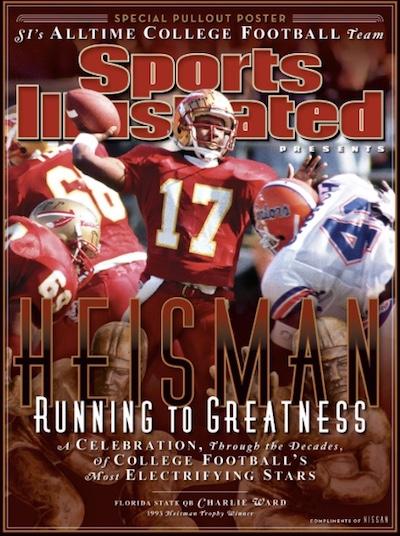
"We went to the Statue of Liberty and Chinatown, and we saw the Rockettes and opened the New York Stock Exchange and just ... so many things," she said. "We saw them light the Christmas tree in Rockefeller Center. We went to Spike Lee's studio. It was a whirlwind of memories."
The younger members of the Ward family remember that trip to Spike Lee's studio for two very different reasons. The first was that they got to see footage of the movie Crooklyn long before it came out, which in the pre-internet days was something that almost never happened. The second was that they got to witness their mom, a nice lady from a small Georgia town, ask Oscar-nominated and iconic Hollywood director Spike Lee why he had to use so much profanity in his movies. The best part, the kids say, is that it wasn't as if she was a mega Do The Right Thing fan. She had never actually seen one of his movies. She had just heard they were filled with swears.
"Well, he gave me an answer," Willard said. "He told me that was what people wanted to see. He said that if he did a documentary or something, people wouldn't go see it and he wouldn't get the audience he wanted. He said he was in show business and he had to give the people what they want. And that was fine with me. He was very nice. But those scenes from Crooklyn are still the only scenes of his movies I've ever seen, by the way."
-- Excerpted by permission from The Athlete: Greatness, Grace and the Unprecedented Life of Charlie Ward by Jon Finkel. Copyright (c) 2017. All rights reserved. No part of this excerpt may be reproduced or reprinted without permission in writing from the publisher. Available for purchase from Amazon. Follow Jon Finkel on Twitter @Jon_Finkel.


